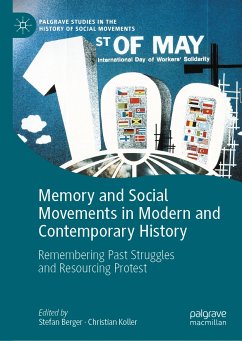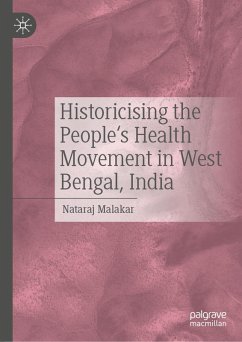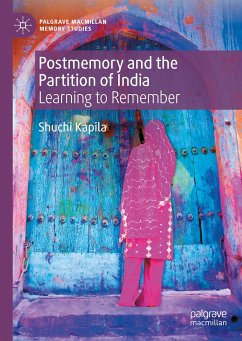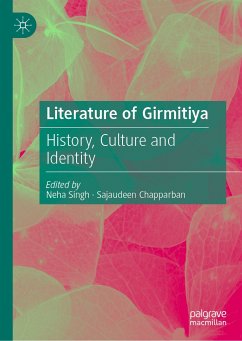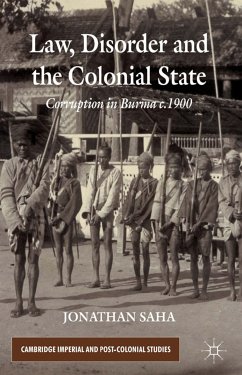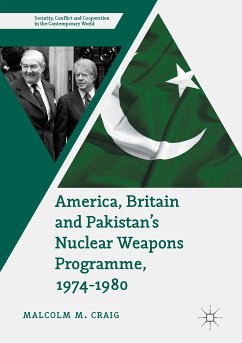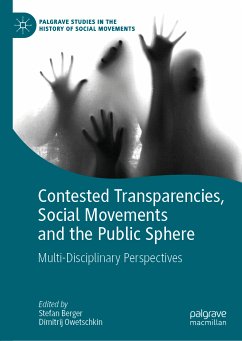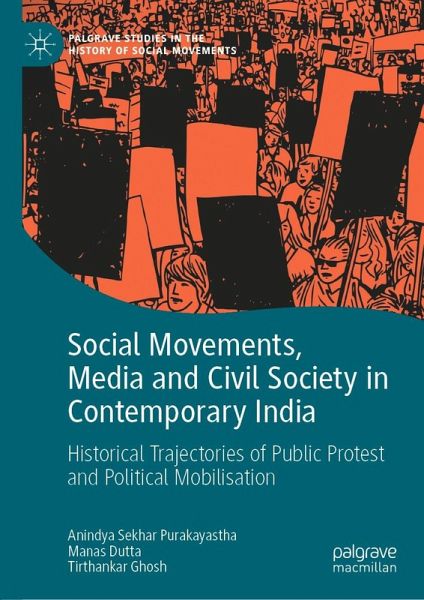
Social Movements, Media and Civil Society in Contemporary India (eBook, PDF)
Historical Trajectories of Public Protest and Political Mobilisation
Versandkostenfrei!
Sofort per Download lieferbar
96,95 €
inkl. MwSt.
Weitere Ausgaben:

PAYBACK Punkte
48 °P sammeln!
This book examines instances of transformative dissent, turning points or shifts in popular mobilisation patterns in contemporary India, while adopting a historical approach and analysing past events. Exploring the different continuities and discontinuities in mobilising patterns and dissident agency in India, the authors present a heterogeneous insurrectional pattern that pivoted around issues of caste, class, religion, land reform, labour, taxation and territorial control, with anti-colonialism movements becoming prominent in the first half of the twentieth century. The authors move beyond t...
This book examines instances of transformative dissent, turning points or shifts in popular mobilisation patterns in contemporary India, while adopting a historical approach and analysing past events. Exploring the different continuities and discontinuities in mobilising patterns and dissident agency in India, the authors present a heterogeneous insurrectional pattern that pivoted around issues of caste, class, religion, land reform, labour, taxation and territorial control, with anti-colonialism movements becoming prominent in the first half of the twentieth century. The authors move beyond this to explore more recent templates of mobilisation which surfaced towards the end of the twentieth century, during India's liberalisation period. With growing marketisation and technological advancement, unprecedented changes in social relations, growing economic opportunities and cultural transfusion taking place, the country became a 'New India' - one which aspired to be a global player in the wider technological public sphere. Tracing the historical trajectories of social movements in India, this book examines recent trends in digitised dissidence and explores new frontiers of protests, providing fresh insights for those researching the history of social movements, South Asian and Indian history and postcolonial studies.
Dieser Download kann aus rechtlichen Gründen nur mit Rechnungsadresse in A, B, BG, CY, CZ, D, DK, EW, E, FIN, F, GR, HR, H, IRL, I, LT, L, LR, M, NL, PL, P, R, S, SLO, SK ausgeliefert werden.



